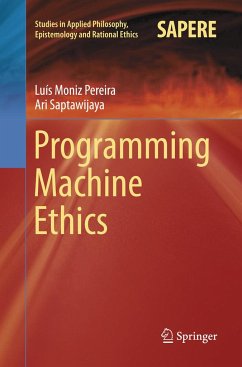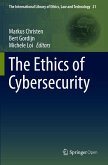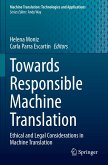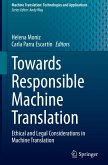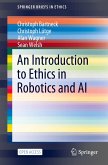This book addresses the fundamentals of machine ethics. It discusses abilities required for ethical machine reasoning and the programming features that enable them. It connects ethics, psychological ethical processes, and machine implemented procedures. From a technical point of view, the book uses logic programming and evolutionary game theory to model and link the individual and collective moral realms. It also reports on the results of experiments performed using several model implementations.
Opening specific and promising inroads into the terra incognita of machine ethics, the authors define here new tools and describe a variety of program-tested moral applications and implemented systems. In addition, they provide alternative readings paths, allowing readers to best focus on their specific interests and to explore the concepts at different levels of detail.
Mainly written for researchers in cognitive science, artificial intelligence, robotics, philosophy oftechnology and engineering of ethics, the book will also be of general interest to other academics, undergraduates in search of research topics, science journalists as well as science and society forums, legislators and military organizations concerned with machine ethics.
Opening specific and promising inroads into the terra incognita of machine ethics, the authors define here new tools and describe a variety of program-tested moral applications and implemented systems. In addition, they provide alternative readings paths, allowing readers to best focus on their specific interests and to explore the concepts at different levels of detail.
Mainly written for researchers in cognitive science, artificial intelligence, robotics, philosophy oftechnology and engineering of ethics, the book will also be of general interest to other academics, undergraduates in search of research topics, science journalists as well as science and society forums, legislators and military organizations concerned with machine ethics.
"Programming Machine Ethics (PME) presents an alternative, combining traditional approaches to decision making with logic-based AI techniques. ... PME draws upon a huge range of relevant work in philosophy, psychology, artificial intelligence and other disciplines, giving that work both computational and logical interpretations, and realising it by means of well-crafted computer implementations. The book fulfils an important need at a time when computers are interposing themselves into every aspect of our human lives." (Robert Kowalski, AI & Society, Vol. 32 (111), March, 2017)
"This book is mostly about programming normative rules into robots and machines ... . For those interested in the formalization of moral problems such that they can be solved by robots, it is a must read." (Sean Welsh, Minds & Machines, August, 2016)
"This book is mostly about programming normative rules into robots and machines ... . For those interested in the formalization of moral problems such that they can be solved by robots, it is a must read." (Sean Welsh, Minds & Machines, August, 2016)

